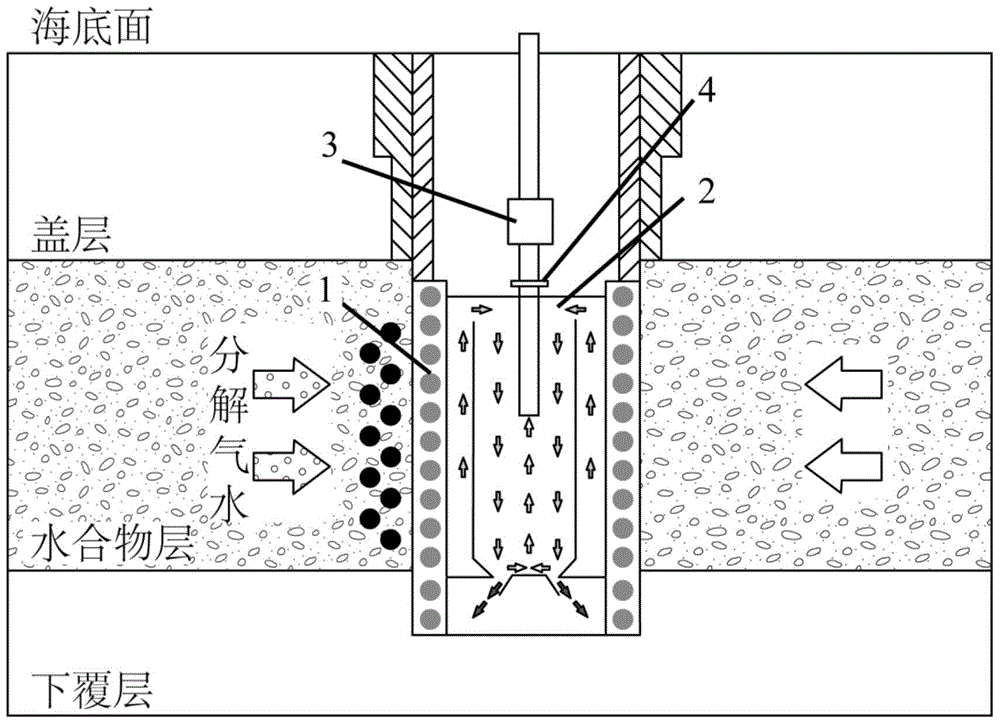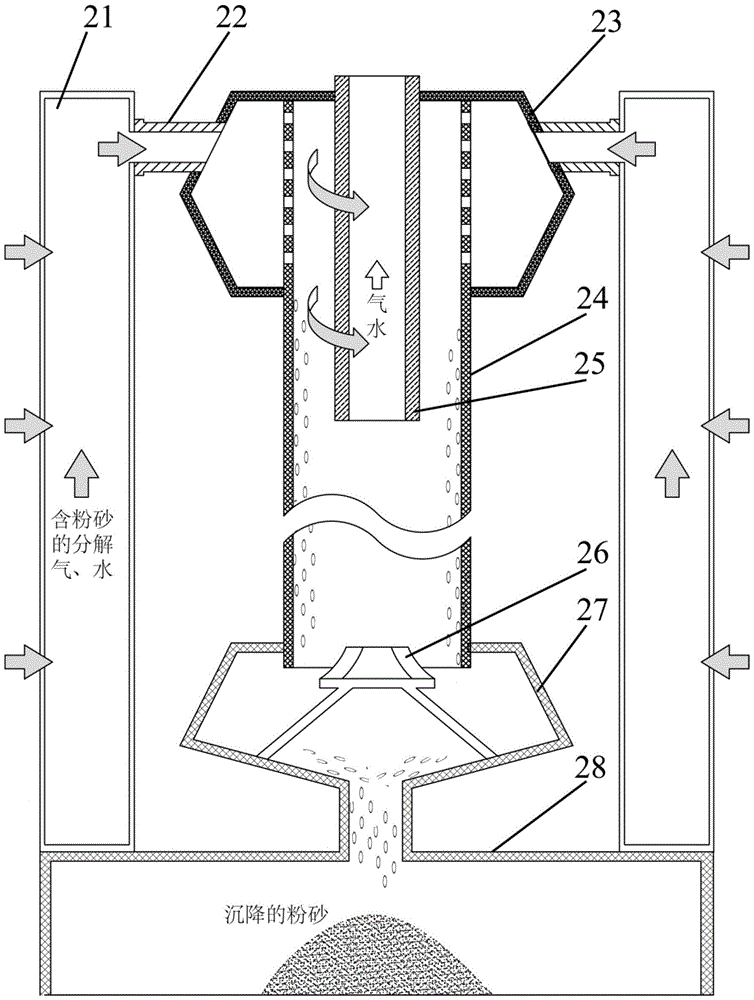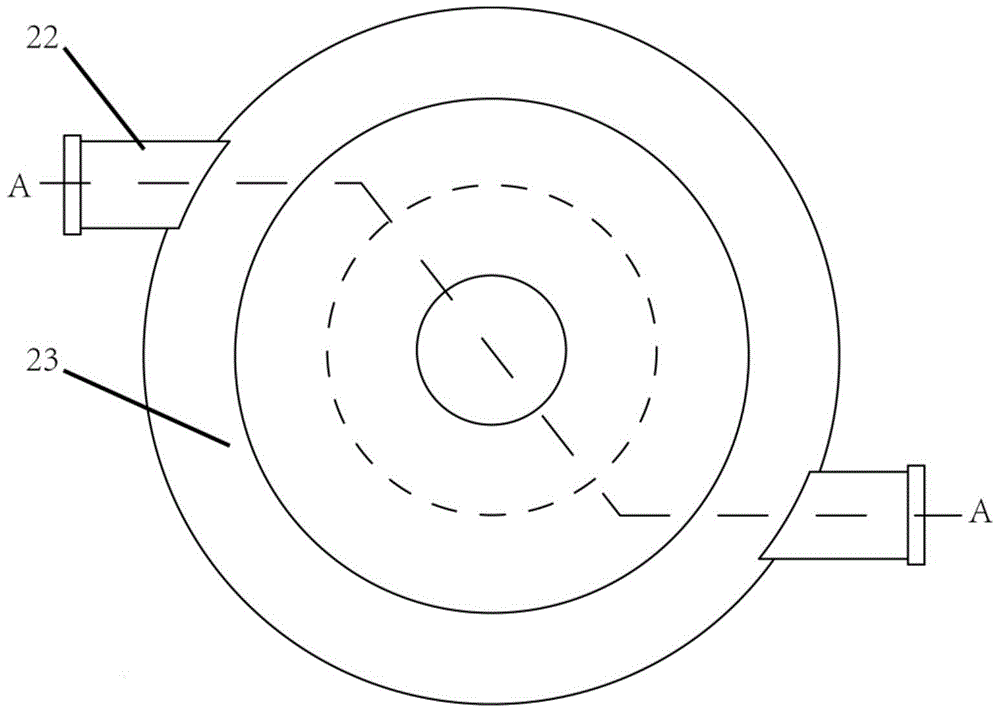A device and method for sand removal in marine natural gas hydrate production wells
A technology for natural gas and hydrate, which is applied in the fields of fluid production, earth-moving drilling, wellbore/well components, etc. It can solve the problems of blockage, structural limitation, and arrangement at the well outlet on the surface, so as to improve sand removal efficiency and reduce equipment wear effect
- Summary
- Abstract
- Description
- Claims
- Application Information
AI Technical Summary
Problems solved by technology
Method used
Image
Examples
Embodiment Construction
[0021] specific implementation plan
[0022] Combine below figure 1 , figure 2 The present invention is described in detail with examples.
[0023] 1. After the drilling is completed, the gravel packing group 1 is first lowered to the bottom of the wellbore, and then the centrifugal desander 2 and the submersible pump 3 are connected with the connecting flange 4 and lowered to the bottom of the wellbore as a whole, such as figure 1 As shown, at this time, the outer wall of the diversion chamber 21 of the centrifugal desander is attached to the inner wall of the gravel packing group 1;
[0024] 2. After the mining starts, the gas, water and mobile sand produced by the decomposition of the natural gas hydrate layer flow to the wellbore. The larger sediment particles are blocked by the gravel packing group 1, and the smaller particles of silt enter the centrifugal removal along with the decomposed gas and water. sander 2;
[0025] 3. The decomposed gas and water containing s...
PUM
 Login to View More
Login to View More Abstract
Description
Claims
Application Information
 Login to View More
Login to View More - R&D
- Intellectual Property
- Life Sciences
- Materials
- Tech Scout
- Unparalleled Data Quality
- Higher Quality Content
- 60% Fewer Hallucinations
Browse by: Latest US Patents, China's latest patents, Technical Efficacy Thesaurus, Application Domain, Technology Topic, Popular Technical Reports.
© 2025 PatSnap. All rights reserved.Legal|Privacy policy|Modern Slavery Act Transparency Statement|Sitemap|About US| Contact US: help@patsnap.com



